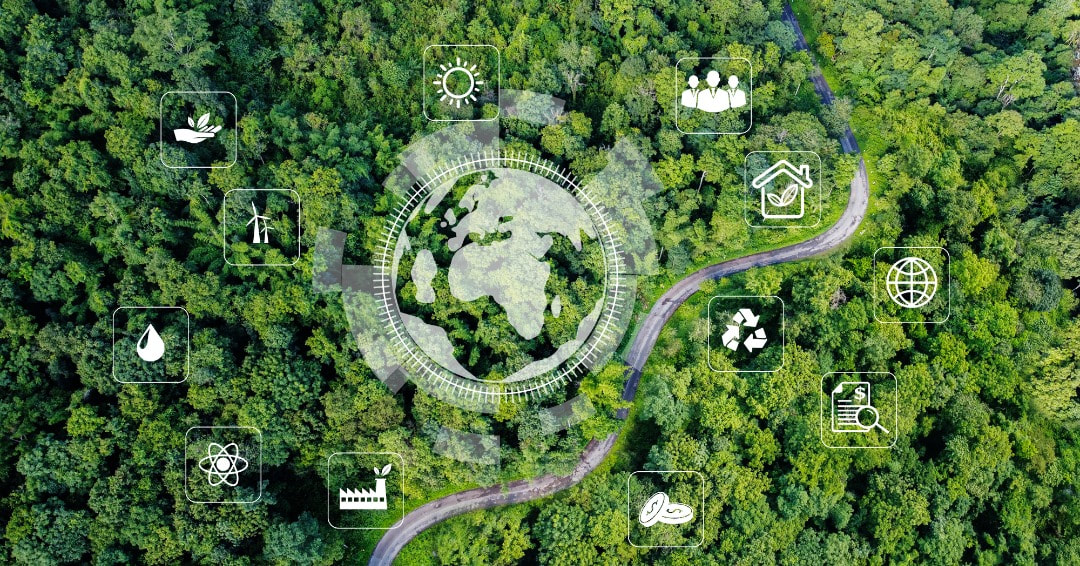|
Climate change, resource scarcity, and environmental challenges intensify, sustainability have become a key focus for businesses, governments, and individuals. This increased emphasis on sustainable practices has fueled the demand for professionals in the field. But how do you start a career in sustainability? This guide outlines the essential steps, key roles, and leading companies in the sector to help you get started.
|
What Does a Sustainability Professional Do?
Sustainability professionals work to address environmental and social challenges, implementing practices that benefit people, planet, and profit. Their goal is to ensure that operations, investments, and policies align with sustainable development goals (SDGs). Key areas of work often involve Corporate Social Responsibility (CSR), Sustainable Finance and Impact Investment, Renewable Energy and Cleantech, and Environmental, Social, and Governance (ESG) management.
These professionals can be found across various industries, from consulting and energy to fashion and food production, reflecting the widespread integration of sustainability into business models.
Key Roles in Sustainability
Several key roles define the sustainability sector, each with specific focuses and responsibilities:
Corporate Social Responsibility (CSR) Manager
CSR managers focus on how companies can contribute positively to society, working on initiatives that range from ethical sourcing to community engagement. They manage social programs, charitable activities, and policies that support the company’s social and environmental goals.
- Average Salary: £50,000 – £70,000 per year, depending on the company and location.
Sustainable Finance and Impact Investment Professional
Working in sustainable finance involves guiding investments into projects and companies that meet environmental and social sustainability criteria. Impact investment professionals specifically direct funds to projects with measurable positive outcomes, such as renewable energy or social enterprises.
- Average Salary: £60,000 – £120,000 per year, depending on seniority and location.
Renewable Energy Engineer
Engineers in the renewable energy sector design and implement technologies such as solar panels, wind turbines, and hydropower systems. They play a critical role in reducing reliance on fossil fuels and promoting clean energy solutions.
- Average Salary: £40,000 – £80,000 per year.
ESG Analyst
ESG analysts evaluate companies on their environmental, social, and governance performance, helping investors make informed decisions. ESG criteria have become a crucial part of evaluating a company’s long-term sustainability and ethical performance.
- Average Salary: £50,000 – £90,000 per year, depending on experience.
Climate Change Consultant
These professionals help organizations develop strategies to mitigate and adapt to climate change. Their work involves carbon accounting, risk assessments, and climate impact analyses to ensure long-term sustainability.
- Average Salary: £45,000 – £75,000 per year.
Where Are the Jobs in Sustainability?
The sustainability sector is growing globally, with key regions and countries leading the charge. Some of the most active regions for hiring sustainability professionals include:
United Kingdom
The UK has set ambitious targets to reach net-zero carbon emissions by 2050. This has led to high demand for sustainability roles, particularly in renewable energy, sustainable finance, and ESG.
United States
With renewed focus under recent administrations, the US is a leader in cleantech and impact investment. The growth of green jobs across sectors like energy, technology, and infrastructure is a strong driver for sustainability professionals.
Germany
As a global leader in renewable energy and environmental policy, Germany’s sustainability sector offers abundant opportunities, especially in roles focused on energy transition and environmental engineering.
Australia
Known for its focus on climate change and sustainable resource management, Australia has a growing demand for sustainability professionals, particularly in sectors like mining, agriculture, and renewable energy.
Scandinavia
Countries like Sweden, Norway, and Denmark are pioneers in sustainable finance and corporate social responsibility, offering job opportunities in businesses committed to achieving SDGs.
Top 5 Companies Hiring Sustainability Professionals
Several companies are known for their commitment to sustainability and actively recruit professionals to lead their efforts:
- Unilever: A global leader in sustainability, Unilever integrates ESG across its supply chain, promoting ethical sourcing and reducing waste.
- Siemens: Siemens drives cleantech innovation in renewable energy and smart infrastructure, offering numerous roles for engineers and sustainability experts.
- Tesla: A pioneer in renewable energy and electric vehicles, Tesla regularly recruits sustainability professionals to lead its environmental initiatives.
- Schneider Electric: Known for its focus on energy management and automation, Schneider Electric seeks out sustainability managers to enhance its green strategy.
- PwC: PwC’s sustainability and climate change consulting services help businesses transition to low-carbon economies, offering roles in sustainability consulting and ESG analysis
How to Start Working in Sustainability?
1. Education and Skills Development
A strong educational background is essential to break into the sustainability sector. Degrees in environmental science, sustainability, engineering, or finance provide a solid foundation for most roles. Additionally, gaining knowledge in areas like climate change, ESG reporting, and renewable energy can enhance your prospects.
Certification programs such as the CFA Institute’s Certificate in ESG Investing or the GARP Sustainability and Climate Risk Certificate can also boost your credentials in sustainable finance and impact investment.
Certification programs such as the CFA Institute’s Certificate in ESG Investing or the GARP Sustainability and Climate Risk Certificate can also boost your credentials in sustainable finance and impact investment.
2. Gain Experience
Internships, volunteer work, or entry-level roles in related fields can help you gain the necessary experience. Many professionals begin their careers in traditional sectors, such as finance or engineering, before transitioning to sustainability-specific roles. Getting involved in corporate social responsibility initiatives or community-driven environmental projects can also be valuable.
3. Networking and Professional Associations
Networking is key to building a career in sustainability. Attending conferences like Climate Week NYC or joining associations such as UKSIF (UK Sustainable Investment and Finance Association) can help you connect with professionals and learn about job openings.
Salary Expectations in Sustainability
Salaries for sustainability professionals vary widely depending on the role, company, and location. For example, CSR Managers typically earn between £50,000 and £70,000 annually, while ESG Analysts can earn up to £90,000. Senior roles like Impact Investment Directors can command salaries exceeding £120,000 per year.
Tips for Negotiating Your Contract
When negotiating your contract, keep in mind the following:
- Salary: Ensure that the offer aligns with industry standards and your level of experience.
- Benefits: Look for benefits that reflect the company’s commitment to sustainability, such as green commuting incentives or flexible working hours.
- Professional Development: Seek opportunities for ongoing training and certification in key areas like ESG or impact investment.
Starting a career in sustainability offers the chance to work in a field that aligns with your values while making a tangible impact on the planet. If you’re ready to hire or recruit top sustainability talent, or if you’re looking to take the next step in your career, contact EnableGreen Executive Search Agency. Our experienced team can help connect you with the right opportunities and candidates in the sustainability sector.


